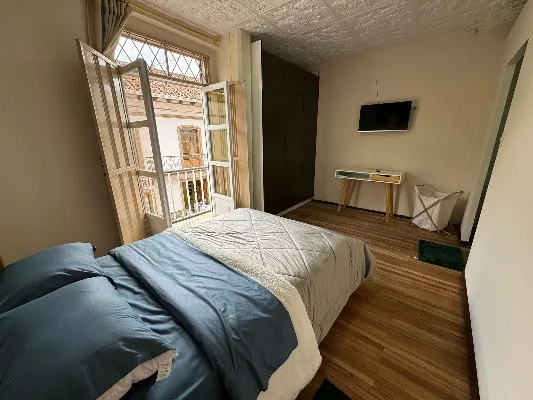Cuenca real estate: It’s a buyer’s market but most sellers don’t know it yet
By Sylvan Hardy
According to Cuenca real estate agents, the local market has turned in favor of buyers for the first time in almost 10 years. It’s a fact that many sellers have difficulty accepting.

Condominiums have been the most popular properties in Cuenca. In some cases, sellers have seen 100% capital gains on sales in five or six years.
“After so many years of strong appreciation, it’s hard for many sellers to realize the new reality,” says Gustavo Vega. “Because of this, many sellers are holding firm on their asking prices and wondering why they aren’t getting any good offers.”
Vega says that sales in the Cuenca canton are down by almost 30% since last year and more than 50% since peak sales in 2012. “There is a record number of properties now on the market and more are being added every day,” he says.
There are several reasons for the market change, with the immediate focus on capital gains and inheritance tax increases introduced by President Rafael Correa to the National Assembly in May and then withdrawn, following protests. Correa’s administration is currently involved in what it calls a “national dialogue” to discuss the taxes and other issues with the public.
Expat Chuck Rimmer, who was a real estate agent in Miami for 20 years before moving to Cuenca, says that uncertainty about taxes has put real estate sales “on ice” not just in Cuenca, but throughout Ecuador. “Everybody is waiting to see what happens in September when he [Correa] says he will re-introduce the taxes to the Assembly,” he says. “It’s a good bet that the taxes will be a lot less than the original proposal but we won’t know until we see them.”

Houses have also seen strong apreciation.
Vega, who works with both local and foreign buyers, says however, that the Correa tax proposal is only the latest issue in the market decline. “The trend has been going on since 2013,” he says. “In the long-run, I don’t think the new taxes will have a major effect on the market because they’ll be reduced.”
A real estate agent who works with foreigners says that there is a high level of urgency in selling now. “One week, right after Correa announced the taxes, I had seven or eight people call wanting to list their houses or condos,” she said. “I suggested that they wait to see what happens because it will be hard to sell in these circumstances.”
The agent, who asked not to be identified, said she has advised several clients to lower their asking prices, but none will. “They say they will wait to get their price. This is fine but they need to know that they might wait a long time.”
Vega believes many properties are over-priced. “People became accustomed to seeing prices for nice condos double in five or six years, and they can’t believe that it’s not still happening.” He adds: “I don’t think holding a property is a bad idea but sellers need to understand that they probably won’t get the price they might want when they decide to sell. Like anywhere else, they have to deal with the market as it is.”
According to Vega, there are many factors in the slow-down of sales. “First, the number of Ecuadorians returning from living abroad has dropped. There were thousands of buyers in this group and it was the driving force in the market from about 2007 to 2012,” he says. Like other agents, Vega says the impact of expat buyers on the market was minimal.
Another factor slowing sales, says Vega, is the that many potential buyers want properties valued on the deed at the full sales price, not the municipal assessment, which is sometimes 50% or 60% lower. “This means a much larger capital gain for the seller since almost all properties are valued at the assessment. Sellers refuse to pay this since it’s for the benefit of the buyer and many sales are falling through,” he says. In the past, Vega says, people wanted to use the municipal assessment on the deed because it meant lower property taxes.
Real estate attorney Andrea Jaramillo says most Cuenca attorneys are recommending that clients record new property purchases at the sale price for two reasons.
“Since buyers don’t know the outcome of the capital gains situation, they don’t want to be caught later with a low purchase valuation if the new law says that capital gains will be based on the sales price,” she says.
“The other issue involves being able to prove where you get your money. Banks now have to report large deposits and are asking clients to prove the source. If you deposit $100,000 for the sale of a house but your sales contract shows a municipal value of $40,000, there’s a $60,000 discrepancy even though the sale was entirely legal,” Jaramillo says.
According to Vega, the new rules for proving source of income have nothing to do with the tax situation and, in fact, are being imposed on Ecuador by an international agency. “The FATF [International Financial Action Task Force] is worried about money laundering and has been asking the government for years to track the source of transactions. It’s the same as what happens in Colombia.”
What’s the outlook for the real estate market?
“We will know about the tax situation within a few months,” Vega says, “but even after that, we will still be dealing with the slow market with lots of properties for sale. Right now, it’s a very complicated situation and it may take a few years before it’s all sorted out and the market starts to recover.”





















